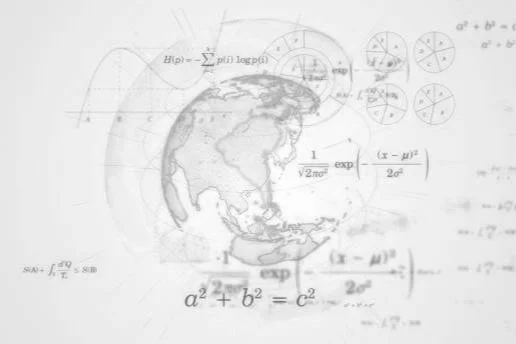1. Practice Areas
-

Geopolitics, Defence, & Security
Our track record of successfully completed client work and self-initiated research, in the geopolitics, defence, and security domain, is extensive.
We undertook assignments primarily on behalf of government clients, via prime-led contracting frameworks. The research covered the usual assortment of strategy, territory, technology and threat concerns, and was typically delivered in the form of detailed studies, briefing packages, maps and datasets.
Our business development roadmap includes creation of an online catalogue of project titles for client consultation, with detailed case study descriptions available on request.
-

Rule of Law & Legal Support
We maintain longstanding scholarly and professional commitments to the rule of law, and all of our consultancy assignments have positioned us to exercise those commitments. We have also completed assignments embedded in structures specifically mandated to uphold and promote legal process, principles, and outcomes.
Specific types of work are legal research and pre-discovery, including needs assessment, evidence collection, large-scale digitization, and technology assisted review.
Craighead Kellas supports legal process and operations. We do not provide legal advice, or legal services regulated under English and Welsh law.
-

Emerging Technologies R&D
Our Emerging Technologies R&D practice evolved from client requests for the strategic contexts and market intelligence they needed to make informed decisions about technology innovations. It has matured into a dedicated line of effort.
We are now focused on artificial intelligence, especially UX and adoption issues, and we are heavily engaged in product testing and prompt design. Meanwhile, we remain committed to the broader spectrum of emerging tech work that shaped us.
We’ve mapped the state of the art in technology research, assessed threats and risks precipitated by specific innovations, and partnered with innovators to establish compelling rationales for new technology investments.
-

Mapping Economies & Finance
Desk assignments and field work relating to fragile and conflict affected states frequently overlapped with underlying economic challenges and the financial activities of globally sanctioned entities.
Faced with multiple field assignments, we designed and maintained a dedicated in-house research program on the behavioural, cultural, and social characteristics of financial networks, including both licit and illicit entities.
In that context, we performed a rapid field assessment of revenue leakage factors surrounding a major mining concession in Indonesia, and fieldwork to understand economic conditions and financing mechanisms in Nigeria, Syria, and Iraq.
2. Detailed Case Studies
-

R&D Support
One of the foundational experiences of our Emerging Technologies R&D practice was a UK Defence Science and Technology Lab (DSTL) project on autonomous resupply logistics in the “last mile”.
****
Case Description
A technology start-up won government accelerator funding for an autonomous resupply vehicle project.
Situation: The project required a specialist in policy, legal, regulatory and operational research to establish deep context, justification and implications of the proposed technology.
Solution: Research was done on government policy, multi-agency logistics doctrine, standard operating procedures, and case studies of the commercial state of the art.
Impact: The final report provided the contextual detail needed to justify the project to the funding programme, trigger release of a funding tranche, and advance to next stage of research and development.
-

De-Risking
In post-Gaddafi Libya, armed influence networks exercised patchwork control of the country’s oil fields. This represented serious risk for foreign owners and Insurers, who needed expedited understanding of local conditions.
****
Case Description
An insurer monitoring a politically unstable North African state amidst violent revolutionary upheaval.
Situation: The client required an updated understanding of political and commercial channels of influence in the area. Due to the fluid nature of the situation, it also required an expedited response, and core capability in the form of an outsourced investigative analyst who could design and undertake research in support of the in-house team.
Solution: An approach was designed and implemented. Locally produced open sources, including online, print and grey literature, were identified as containing information relevant to client requirements. Steps were then taken to acquire and collate the information, validate it, and extract relevant data points. These became the source data for network charts mapping out social, political and commercial influence networks.
Impact: The client was briefed, and a final report and data visualisation product were handed over. The client deployed the collated information and briefing materials to its in-house team, which in turn used them to increase the effectiveness of its real-time fraud detection and investigations.
-

Pre-Discovery
A European state with troops in Afghanistan wanted to improve its understanding of the Taliban before engaging them in diplomatic talks. Funding was provided to digitise and translate a large collection of primary sources.
****
Case Description
A northern European state preparing for diplomatic talks with the de facto authorities of a post-conflict region.
Situation: Very little was known about the de facto authorities. The client wished to have a broader knowledge base so that its desk officers and diplomats could more effectively prepare for talks with the de facto authorities. They were aware of a private collection of hardcopy primary sources that had been generated by the de facto authorities, including newsprint, magazines, laws and decrees, and other openly published materials. The collection was held in a remote location, physically inaccessible to researchers outside the country, could not be relocated, and the texts were in multiple languages read and spoken by very few in the Ministry.
Solution: A project was designed from scratch to preserve, organise, digitise and translate the collection. Digitisation equipment was procured or built, and digitisation and translation efforts were undertaken under austere conditions, in partnership with the collection owners. Over 50000 pages were digitised, 2 million words of text were translated from three different languages into English, and local staff received and implemented training in digitisation processes. The original collection was left in the safekeeping of a custodian in the country and thereby preserved as tangible cultural heritage, and the digital collection was donated to a university library to ensure future researcher access.
Impact: The project radically increased the store of publically available primary source data on the de facto authorities. Conversion of the collection from paper to digital media prevented loss of the physical materials, and of the information contained in them. The availability of an accessible and searchable digital archive enabled better informed diplomatic engagement with the de facto authorities, and researchers have authored multiple books and articles based on the newly available source materials.

